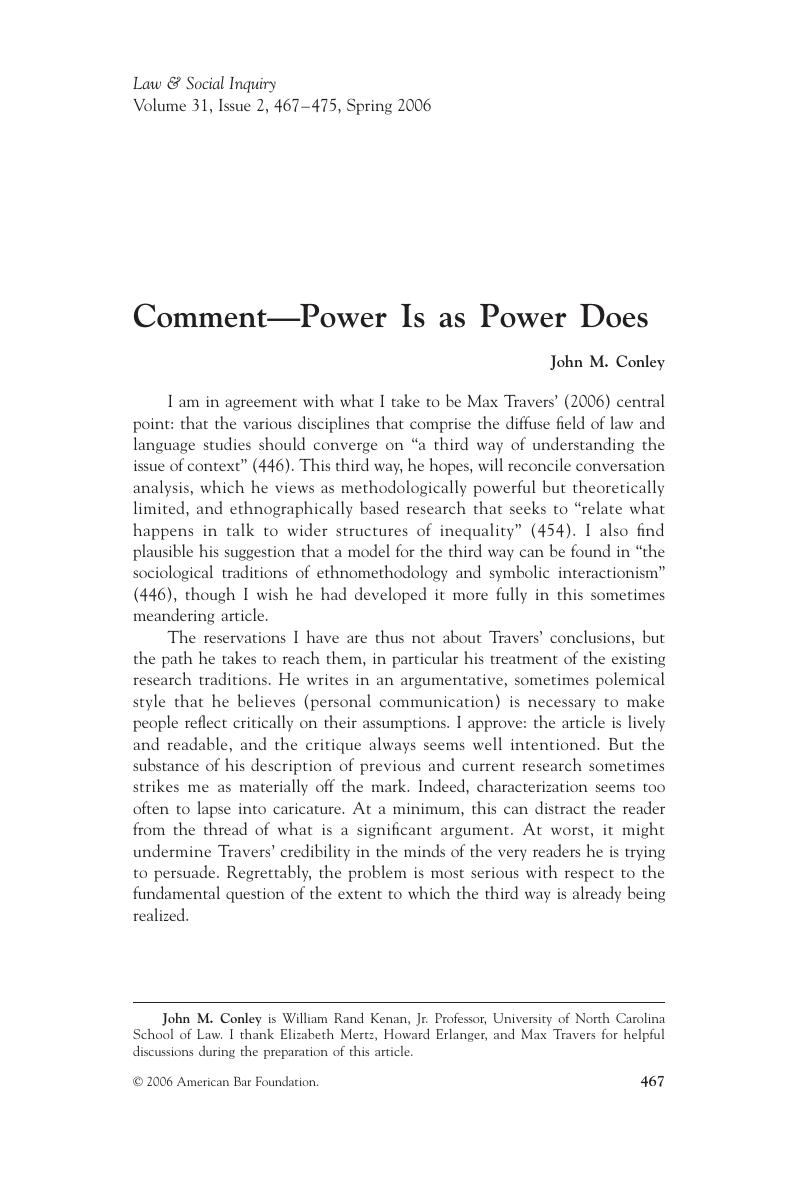Crossref Citations
This article has been cited by the following publications. This list is generated based on data provided by Crossref.
Mertz, Elizabeth
2007.
Semiotic Anthropology.
Annual Review of Anthropology,
Vol. 36,
Issue. 1,
p.
337.
Matoesian, Gregory
2012.
The Encyclopedia of Applied Linguistics.
Mertz, Elizabeth
and
Rajah, Jothie
2014.
Language-and-Law Scholarship: An Interdisciplinary Conversation and a Post-9/11 Example.
Annual Review of Law and Social Science,
Vol. 10,
Issue. 1,
p.
169.





